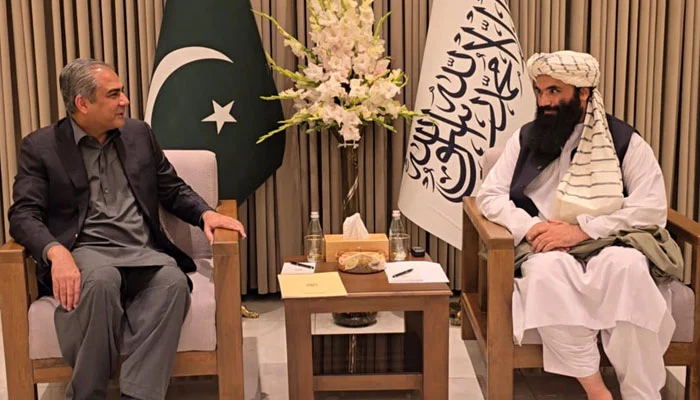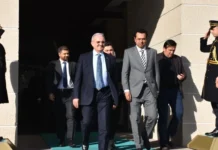KABUL, Jul 21 (Alliance News): Pakistan and Afghanistan have agreed to strengthen cooperation to tackle terrorism, enhance border management, and promote regional stability, following high-level talks between Interior Minister Mohsin Naqvi and his Afghan counterpart Sirajuddin Haqqani in Kabul.
Interior Minister Naqvi, who visited Kabul on a day-long official trip, was warmly received at the airport by Afghan Interim Deputy Interior Minister Mohammad Nabi Omari and other senior officials. The visit marks a renewed push to mend strained ties and foster coordination on mutual security concerns.
During the meeting, both sides reaffirmed the importance of peaceful coexistence and focused on key areas including counterterrorism, prevention of cross-border infiltration, and curbing the activities of the banned Tehreek-e-Taliban Pakistan (TTP). They also discussed the repatriation of Afghan nationals illegally residing in Pakistan.
Naqvi emphasized the need for joint action against terrorist groups destabilizing the region and reiterated Pakistan’s commitment to maintaining brotherly ties with Afghanistan. He also noted Pakistan’s long-standing role in hosting millions of Afghan refugees, adding that the country remains open to Afghan citizens entering legally.
The two sides explored measures for enhanced border security, tackling drug trafficking, and regulating cross-border movement. The talks were attended by Afghanistan’s Senior Deputy Interior Minister Ibrahim Sardar, Pakistan’s Special Representative for Afghanistan Mohammad Sadiq, Federal Interior Secretary Khurram Agha, and other top officials.
This visit follows a series of recent efforts to improve diplomatic relations, including the elevation of both countries’ diplomatic missions from chargé d’affaires to ambassadors. The move signals a gradual warming of ties and greater readiness for bilateral cooperation.
In parallel developments, Pakistan and Afghanistan have recently signed the Uzbekistan-Afghanistan-Pakistan (UAP) Railway Agreement aimed at boosting regional trade and connectivity. They also launched the Additional Secretary-Level Mechanism talks earlier this month to institutionalize dialogue on key matters.
With a porous 2,500-kilometre-long border and growing regional complexities, the renewed cooperation between Islamabad and Kabul is being seen as a critical step toward restoring peace and stability in the region.






